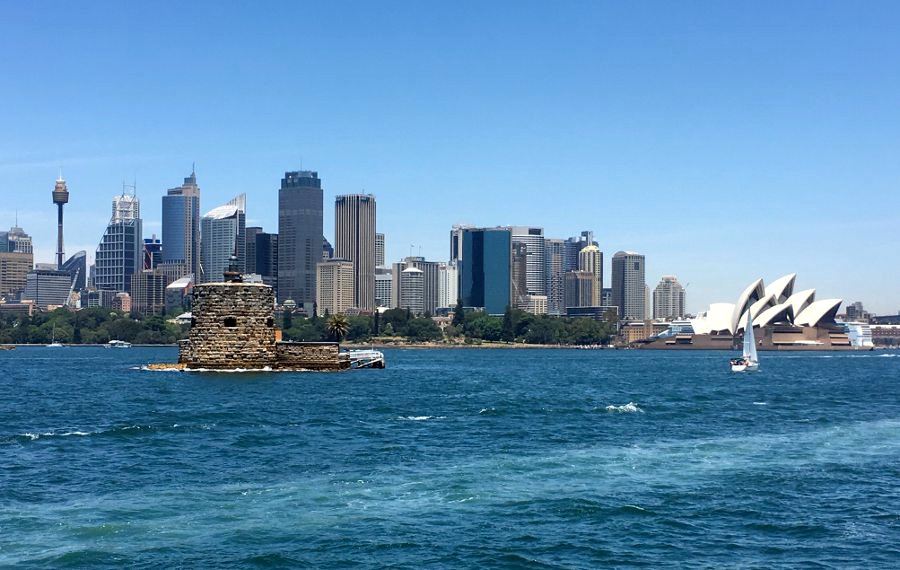
When people ask me about my love of books and daily reading habit they are sometimes surprised when I say I don’t read fiction. Well, that last statement is not completely true as I occasionally read fiction but I’m very choosy.
Why do I read anyway? Reading serves two broad purposes – entertainment and gaining information. I read to learn about a topic which is why my bookcases are filled with books on English language, writing, cooking, art, photography, cinema, history, psychology, music, law, religion, Japan, Korea, China, Indonesia and the Vietnam War.
As a teenager I read a lot of science fiction (Isaac Asimov, Arthur Clarke, Robert Heinlein) and crime novels by Agatha Christie. I also read the fantasy novels of The Hobbit and Lord of the Rings by J R R Tolkien. These books epitomise the value of fiction – to engage our imagination, take us into new worlds and let us experience new situations and places.
After I left school I continued to read novels and enjoyed not having to write essays about what I read. In my early twenties I got interested in reading the “Classic Books” inspired by a list of great books. I started with the Greek classics – The Odyssey (Homer), The Voyage of the Argo (Appolonius). I was reading more and more non-fiction photography, film appreciation, comparative religion, music and wine.
Fiction is about story telling and entertaining the reader. I get most of my entertainment now from watching movies and the occasional TV series (Squid Games, Alice in Borderland, and a few Korean dramas). A good story can be told in a movie in around 2 hours and I enjoy being absorbed in the world of the movie, the characters and plot. I have read a lot of books about cinema, film making, screenplay writing and storyboarding. Telling a story in the medium of film uses images, sound and dialogue. It is different to the written word of a novel and of course many novels have been converted into films.
The topic of books turned into movies is an interesting one. In such a situation I like to read the novel first and then watch the movie. Reading a novel after seeing the movie is not satisfying as your imagination has been spoilt by the movie. I remember enjoying many exciting books which were made into excellent movies – Jaws (Peter Benchley), Jurassic Park (Michael Crichton) and The Godfather (Mario Puzo). Probably the most challenging book was A Clockwork Orange (Anthony Burgess). I hate it when someone is asked if they have read a particular book and they say “No I haven’t, but I’ve seen the movie”. There are many books which are unlikely to be made into films because of their size or complexity, and these books are best enjoyed as they are.
I don’t have many unread novels on my shelves – American Gods (Neil Gaman), Snow Crash (Neal Stephenson), The Handmaids Tale (Margaret Atwood). Most of my books to be read are non-fiction. At the moment I am interested in dystopian fiction and speculative fiction which is like science fiction.
Just to set the record straight, here is a list of novels I have read in the last three years. Twelve novels in three years – an average of one novel every three months. This gives me a break from non-fiction, and often I feel like a break from heavy non-fiction.
- The End of the Affair – Graham Greene (then I watched the movie)
- Pachinko – Min Ji Lee (a very engaging Korean novel)
- We – Yevgeny Zamyatin (dystopian fiction written in the 1920’s and influenced Orwell)
- 1984 – George Orwell (dystopian fiction)
- The Ten Loves of Mister Nishino – Hiromi Kawakami (Japan)
- The Silence of the Lambs – Thomas Harris (read this before watching the movie. Very enjoyable)
- The Fault in our stars – John Green (popular with young people. I got the book from a street library. The movie was good)
- Playing Beattie Bow – Ruth Park (Australian classic children’s fiction. I watched a TV movie production)
- Kim Jiyoung Born 1982 – Nam-Joo Cho (I saw a Korean movie based on this book then read the book when I saw it in Chatswood Library)
- About a Boy – Hornby, Nick (enjoyable book. Watched the movie with Hugh Grant, but I felt the book was better)
- Miss Chopsticks – Xinran (story about the role of women in Chinese society)
- The Rosie Project (Don Tillman) (Australian fiction. This book was very popular and somehow I had a copy which I read then passed on)

Leave a comment